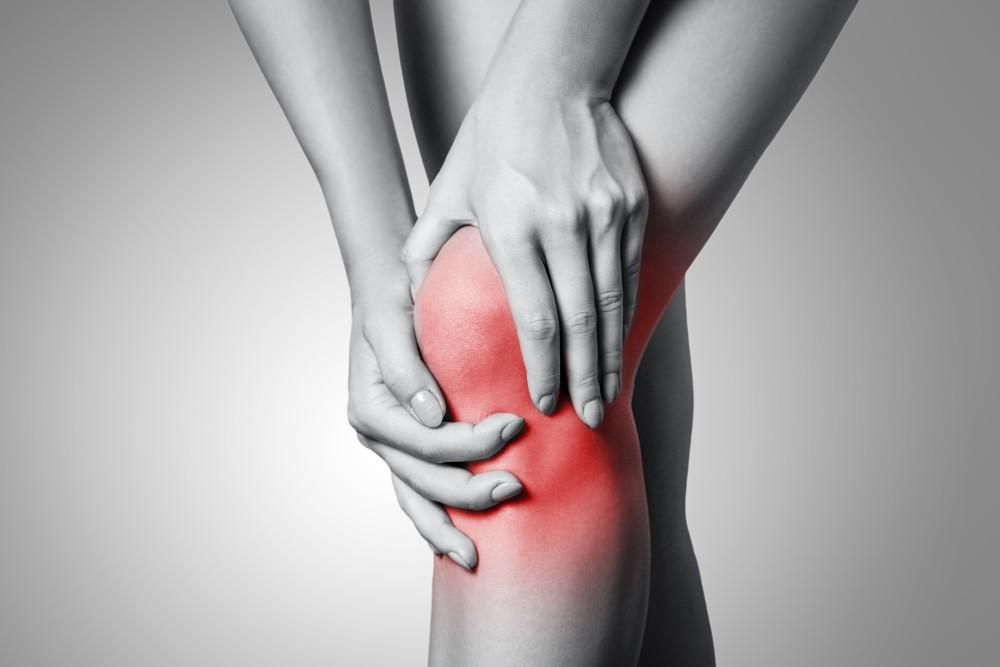What Causes Joint Pain?

What Causes Joint Pain
There are several different causes of joint pain, but they all have one thing in common: they can be highly debilitating and reduce your overall quality of life. Joints are defined as the area on the body where two bone ends meet to provide motion to a particular body part.
Typically, joints are comprised of bones that are separated by cartilage. The cartilage works to provide a cushion for the adjacent bones, which are attached by ligaments. Tendons connect the bone to the muscle around the joint area. Disease or injury to any of the common structures can lead to pain. Joint pain is also known as arthralgia.
Pain can be induced by disease or injury of any ligaments, tendons, or bursae surrounding the joint. Pain can also result from illness or injury that affects the bones, cartilage, and ligaments within the joint itself. Joint inflammation (arthritis), infection, and joint tumors can also cause pain.
Joint Pain Symptoms
Symptoms include swelling, warmth, and tenderness in the general joint area. The pain and symptoms can be aggravated by pressure, motion, or activity, providing weight-bearing resistance.
When to Seek Medical Care
If you experience joint pain that persists longer than one week, you should seek treatment from your doctor or healthcare professional. Severe pain, however, should be evaluated as soon as possible, as it could be a sign of a more severe condition.
When you visit your doctor, they will evaluate the history of your symptoms associated with the joint pain. They will ask what sort of activities you were involved in, whether you experienced a blunt trauma or injury, and other questions that will help them determine the root cause and appropriate treatment.
It would be best if you also were prepared to discuss the relieving and aggravating conditions that affect the amount of pain you experience. After an initial exam, blood tests and x-rays may also be necessary. MRI scanning may also be needed for proper diagnosis.
Joint Pain Treatment
Treatment for joint pain largely depends on the precise cause. If the pain is due to an injury, then initial treatment will likely include plenty of rest, anti-inflammatory medications, and cold applications. Depending on the severity of the injury, rehabilitation and physical therapy may also be needed.
If any form of arthritis causes the pain, anti-inflammatory medications may be necessary, along with other prescriptions directed at the cause of arthritis. Severe cases such as disease of the ligament, bone, or cartilage may require surgery.
Self-Care at Home
Initial treatment at home can include cold compresses, rest, and over-the-counter medication to control inflammation and pain. If the pain persists for more than a week or worsens, it’s time to see your doctor.
Medical Treatment
As already discussed, medical treatment can vary depending on the exact cause of the joint pain. Surgery may be warranted for severe cases; in most cases, however, prescription medication combined with anti-inflammatory medication will help ease pain and relieve stiffness in the joint.
Medications
Traditional medications include anti-inflammatory drugs, immune-suppressing medicines to treat rheumatoid arthritis, biologic medication for psoriatic arthritis, as well as ankylosing spondylitis, and cortisone injections for inflammation. Many of these traditional medications can come with side effects, so be sure that your doctor explains what these side effects are and how they can affect you.
Natural Alternatives
There are several natural alternatives to joint pain that help relieve symptoms and improve your quality of life. Cold compresses can help but often are only temporary. Homeopathic remedies have proven to be very effective in helping relieve joint pain. Other natural alternatives such as capsaicin, Sam-e, and Aquamin are also very effective.
Trending Health Topics
- ADHD
- Allergies
- Arthritis
- Bipolar Disorder
- Bunions
- Car Accidents
- Chron's Disease
- Common Cold
- COPD
- Depression
- Dry Skin
- Dry throat
- Eczema
- Fungal Infection
- GERD
- HIV/AIDS
- Hypertension
- Irritable Bowel Syndrome (IBS)
- Multiple Sclerosis
- Osteoarthritis
- Psoriasis
- Rheumatoid Arthritis
- Skin Disorders
- strep throat
- Type 2 Diabetes
- Uncategorized